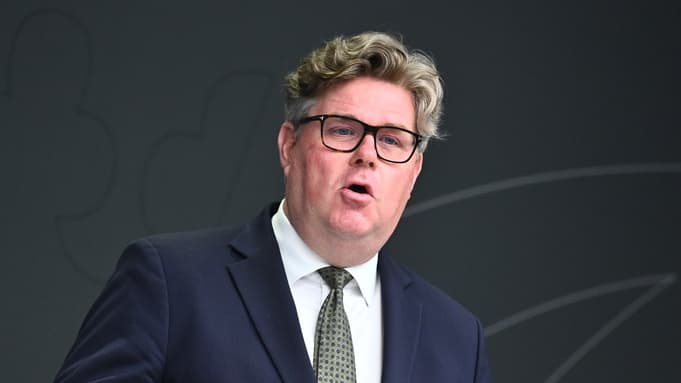Preliminary investigation protocols in criminal cases should be kept secret for a longer period than today. This is proposed by the government's investigator, among other things, alongside anonymous witnesses.
This will reduce the opportunities for criminals to exert pressure on witnesses and plaintiffs, says Minister of Justice Gunnar Strömmer (M) to TT.
Instead of the preliminary investigation protocol becoming public in connection with the indictment, the investigator Fredrik Wersäll proposes that secrecy should prevail until and including the verdict or final decision.
The proposal is submitted in connection with him submitting his final report in the investigation into the introduction of anonymous witnesses in criminal cases.
Weighty reasons
Secrecy should apply if it is not clear that the information can be disclosed without harming individuals or the judicial process.
When the preliminary investigation protocol, not least in slightly larger cases, becomes public, it generates a great deal of interest in the protocol, not only from the media's side, says Wersäll.
This can lead to almost a parallel process. The proposal has a certain impact on public and media insight, but we believe that there are weighty reasons on the other side of the scale.
Gunnar Strömmer notes that it is a balancing act between reduced insight and "protecting the judicial process" when the proposal is now being circulated for comment.
It is a difficult weighing and the goal conflict is real, he says.
Criticized proposal
The investigation has previously proposed introducing a system of anonymous witnesses.
This has received sharp criticism from the Judiciary and the Parliamentary Ombudsman, who have warned that confidence in the judicial system may be damaged.
In May, the proposal was also rejected by the Law Council, which believes that the added value of anonymous witnesses "appears to be very limited".
Strömmer does not want to go into how the government's proposal can be adapted in response to the criticism.
We will present the work when we are finished with the analysis. But if you look at the Law Council's statement, they have gone through it in detail and come up with a long list of proposals, he says.
Then I would like to say that we submitted a proposal that we have assessed as well-balanced.
Does this mean reduced insight and a shift towards more closed processes, is it necessary?
Crime is getting worse, it is system-threatening and endangers very fundamental values in our democratic rule of law. Therefore, it is justified to look into this. With that said, it is important to make careful assessments – and it is not self-evident that every individual proposal should be realized.






